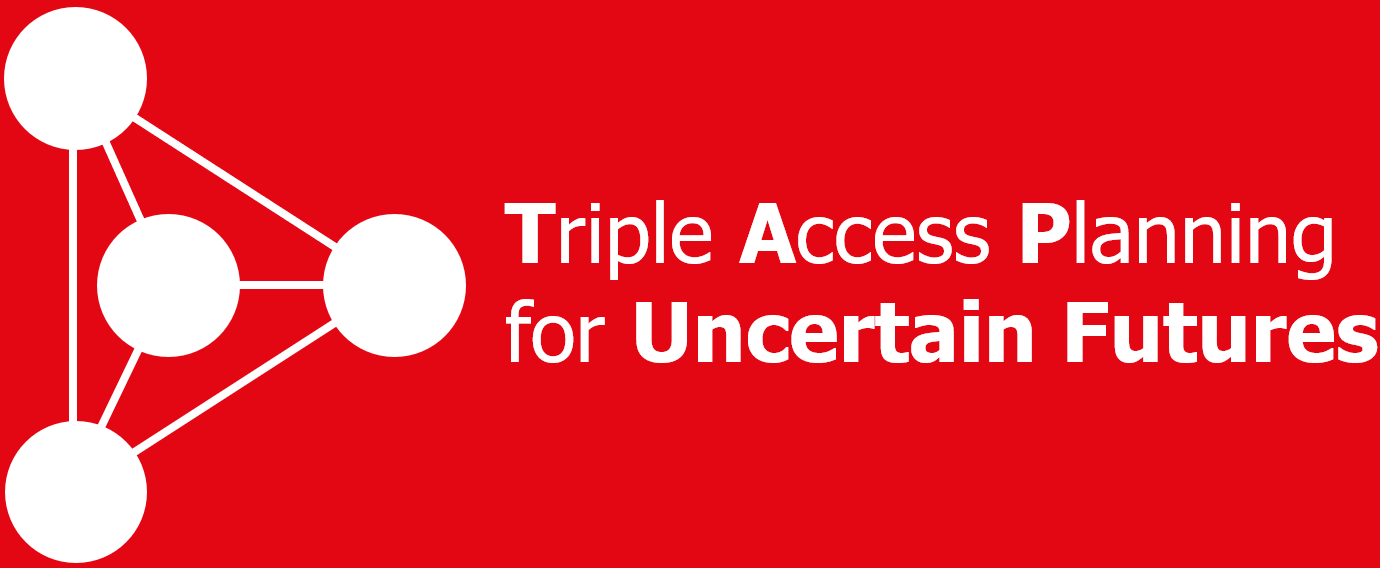Glenn Lyons, UWE Bristol / Mott MacDonald
Within the TAP project, Mott MacDonald has been helping us explore with academics and practitioners how Triple Access Planning can be applied through an online interactive workshop called the FUTURES Relay. FUTURES is a six-stage vision-led approach to strategic planning for an uncertain world developed by Mott MacDonald and UWE Bristol. The Relay workshop allows people to get hands-on experience of this six-stage process. We wanted to use the Relay to engage with citizens of an urban area about Triple Access Planning and ways that transport, location and online access shape urban living.
We are now pleased to make available the report from the FUTURES Relay run earlier this year by Mott MacDonald and UWE with 30 citizens of Bristol in the UK.
While the FUTURES Relay has been run for cities around the world, Bristol (UK) is the first city in which the process has been trialled with citizens. The two-part workshop took place in March 2023 over two Saturday mornings. The facilitation team tailored the content of the Relay to a non-professional audience and sought to be as inclusive as possible within the confines of the online format. The opportunity to take part was promoted through an announcement in Bristol City Council’s fortnightly mailer “Ask Bristol” and a thank you voucher was offered to those taking part.
Bristol is a middle-sized city (472,400 residents) with a high level of diversity (at least 91 languages are spoken). Walking and cycling are used by respectively 20% and 18% of the commuters. The transport system is also characterised by traffic-related concerns – over 70% of citizens perceive traffic as a problem in their area, and the deprived areas are also those with highest risk of road trauma.
The 30 participants involved included a range of age groups, from 18-29 (eight participants) to 80+ (one participant, and six aged 70-79) and included four participants self-identifying as disabled. Participants were mostly drawn in by a desire to help contribute to change and make sure others’ voices are considered, especially those of older and disabled people.
Our report presents the ways the FUTURES Relay was adapted and applied to foster a conversation with citizens, an overview of participants’ very rich contributions to the six stages of the FUTURES Relay, and participants’ feedback on the workshop.
Two key factors affecting developments in the city were identified from participants’ inputs: the consistency of the political agenda and the extent to which citizens themselves are willing (or able) to embrace social change. Both were characterised by high importance and uncertainty. Identifying a deliverable vision for change in urban mobility is not easy, especially in the face of uncertainty. Approaches such as FUTURES – for professionals and citizens alike – allow this challenge to be addressed through shared thinking, diversity of perspective and structured engagement. It was notable during the two parts of the workshop that while encouragement had been given for participants to explore future change from a ‘triple access’ perspective, much less was said in the discussions concerning the role of digital accessibility. This has also been noted within similar engagement with professionals. It seems that while forms of digital accessibility are increasingly pervasive across society and influencing our patterns of activity and travel needs, it can be hard to bring them into the conversation when minds are naturally drawn to considering transport itself.
Citizen engagement is more important than ever, to give a voice to the community affected by change but also to benefit from citizens’ perspectives alongside those from professionals in terms of planning for change for the better. We hope the report and our shared experiences can help other urban transport authorities to implement citizen engagement building on the FUTURES Relay.
